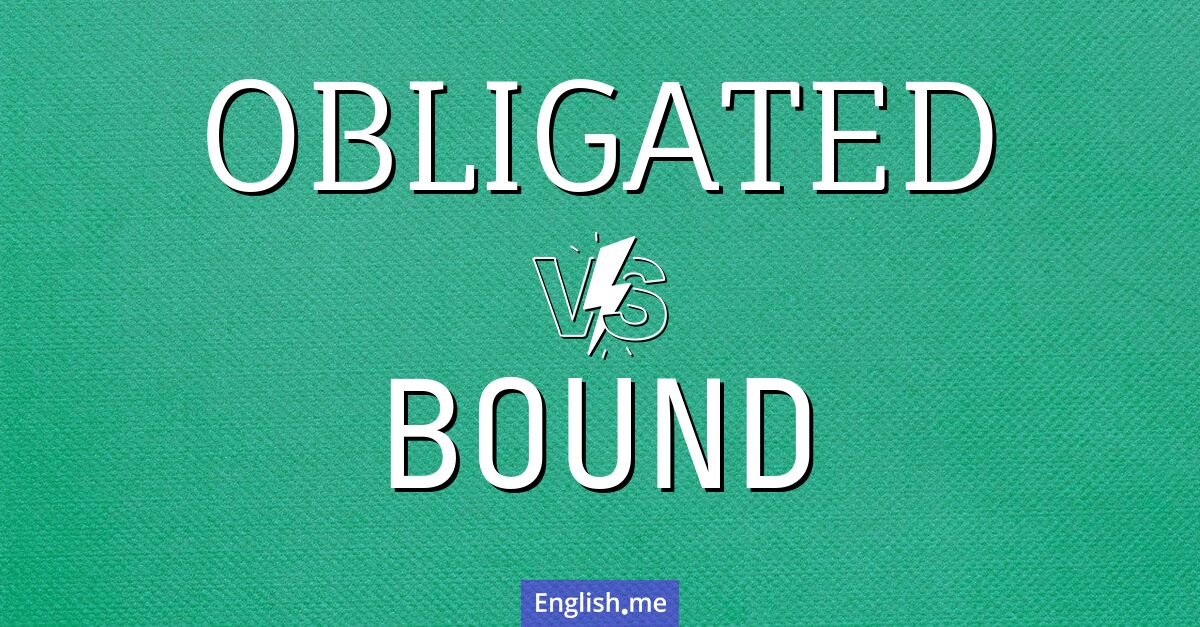"Obligated" vs. "bound": exploring duty and connection
Reviewed and edited by  Lloyd Cooper 07/12/2024, 17:28
Lloyd Cooper 07/12/2024, 17:28
English.me team member

 What is similar?
What is similar?
Both "obligated" and "bound" express a sense of duty or commitment. They indicate that someone is compelled to do something, often due to moral, legal, or social reasons.
 What is different?
What is different?
"Obligated" typically refers to having a formal or legal duty to perform an action. It is often used in contexts where there is a clear obligation imposed by laws, rules, or agreements. "Bound" can also mean being obligated, but it has additional meanings such as being physically tied or secured, or heading towards a destination (e.g., "homeward bound"). "Bound" is more versatile and can be used in various contexts beyond duty or obligation.
 Which one is more common?
Which one is more common?

 Examples of usage
Examples of usage
Obligated- She felt obligated to help her friend after hearing about the problem.
- Employers are legally obligated to provide a safe workplace.
- I don’t feel obligated to attend the meeting if it’s optional.
- He was bound by his promise to stay silent on the matter.
- The prisoner was bound with ropes to prevent escape.
- We are bound for London on the next train.

 English
English español
español française
française italiano
italiano deutsche
deutsche 日本語
日本語 polski
polski česky
česky svenska
svenska Türkçe
Türkçe Nederlands
Nederlands